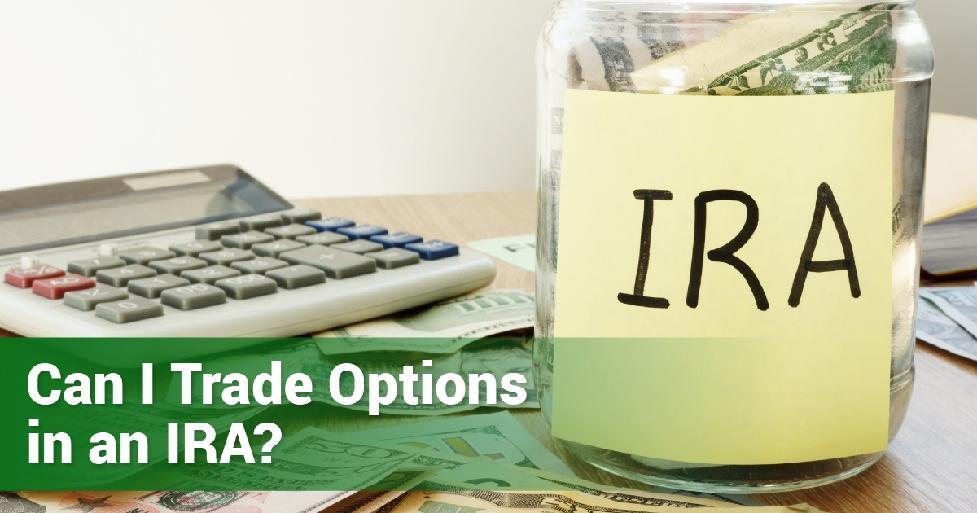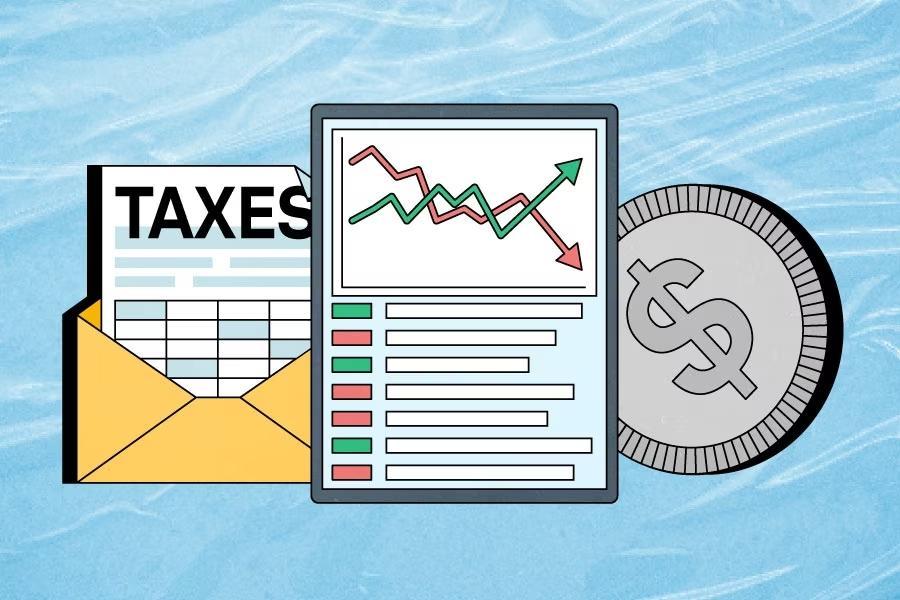Trading Options In An IRA
Nov 13, 2023 By Triston Martin
As an investor, maximizing the potential of your retirement savings is important. An Individual Retirement Account (IRA) provides a unique opportunity for investors to trade options and manage their long-term financial goals from within this special account.
While trading options in an IRA can be a powerful tool to add diversity and strategic growth potential to your portfolio, certain aspects must be carefully considered throughout the process. In this blog post, we will discuss all the factors you should consider when setting up an IRA and using it for options trading.
What is an IRA?
An Individual Retirement Account (IRA) is a tax-advantaged retirement savings account that allows you to set aside funds for the future without being taxed immediately. IRAs are available in traditional and Roth varieties, with different tax, withdrawal, and withdrawals rules.
How Do Trading Options In An IRA Work?
When trading options in an IRA, you have the same basic strategies as when trading without an IRA. You can buy and sell call and put options or construct multi-leg option strategies such as spreads and straddles. However, there are a few key differences that need to be considered.
The most important difference between trading with an IRA and without one is the limitation on leverage when trading in an IRA. While options can provide leverage, the margin rules for traditional IRAs limit maximum leverage to 2:1. So, if you have $10,000 in your IRA, you can only control a maximum of $20,000 worth of stock through options trades.
Trading options in an ira
When trading options in an IRA, several important factors must be considered. First, you need to be aware of the limitations on trade types and strategies that can be executed due to the margin rules associated with IRAs.
Second, you should consider how fees and commissions may impact your overall return on investment in the account. Finally, you should look into any potential tax implications of trading in an IRA.
Ultimately, trading options in an IRA can be a powerful tool for diversifying and growing your retirement portfolio. However, it’s important to understand the associated risks and consider all aspects of the trade before execution. By following these guidelines and using a thoughtful, strategic approach to investing in your IRA, you will be well-positioned to maximize the potential of your retirement savings.
Can you do options trading in an ira?
Yes, you can trade options in an IRA. However, due to the margin rules associated with traditional IRAs, the trades and strategies available may be limited compared to trading outside an IRA.
Additionally, it is important to consider any potential fees or tax implications arising from trading inside an IRA before executing any trades. If done strategically, trading options in an IRA can be a powerful tool for diversifying and growing your retirement portfolio.
Brokers that allow options trading in an ira
Many brokers offer IRA accounts that support options trading. These include TD Ameritrade, E*TRADE, Fidelity, and Interactive Brokers. Each broker has different rules and fees associated with their IRA accounts, so it is important to research before opening an account.
Additionally, each broker offers different tools and resources for traders, so review what platforms and features are available before selecting a broker.
The Taxes on trading options in an ira
Taxes can be a tricky thing to understand, particularly when it comes to trading options in an IRA. Depending on the type of IRA you have, certain tax implications may be associated with your trades. For example, if you use a Roth IRA and profit from your options trades, those profits are not taxable; however, if you use a traditional IRA, those profits may be taxed as ordinary income.
Additionally, any dividends or capital gains you receive from your trades will also have associated taxes depending on the type of IRA and the holding period of the investments.
It is important to understand how each type of IRA works and what tax implications come with each trade. Additionally, it is important to consider any potential tax penalties that may result from excessive trading or certain strategies. For example, the “wash sale rule” applies to IRA accounts and can impose a penalty if certain trades are placed within 30 days of each other.
Working with a professional financial advisor can be very helpful in navigating the taxes associated with trading options in an IRA. Additionally, many brokers provide tools to help investors understand their potential tax liability before executing a trade. Ultimately, it is important to consider all aspects of taxation when trading options within an IRA to ensure that you remain compliant and avoid costly penalties.
What options trading is allowed in an ira
Regarding trading options in an IRA, several different strategies can be employed. Generally speaking, any option strategy permitted by the broker or custodian of the account is allowed. This includes buying and selling calls and puts and utilizing spreads such as verticals, straddles, and strangles. Covered calls and protective puts are also permitted if the underlying stock is held in a separate account.
Additionally, option spreads that involve multiple legs across different accounts are allowed, provided the trades are offsetting in terms of risk. For example, if you buy a call in an IRA account and simultaneously sell a call in a taxable account, then this is allowed. However, if you buy a call in an IRA account and sell a put in a taxable account, the IRS considers this an “unrelated transaction” and could impose certain penalties or taxes.
It is important to remember that each broker has different rules regarding which strategies are allowed within their IRA accounts. Therefore, reviewing these rules before trading in an IRA account is important. Additionally, investors should consult a professional financial advisor or tax specialist before engaging in any options trades within an IRA account.
FAQs
What are the risks associated with trading options in an ira?
As with any type of investment, certain risks are associated with trading options in an IRA. This includes potential losses due to market volatility or if a trade goes against you. Additionally, investors may be subject to taxes and penalties if they don’t follow the rules of the IRA account or engage in strategies their custodian prohibits. It is important to understand the risks associated with trading options within an IRA and to always consult a professional financial advisor before making any decisions.
Are There Limits To The Amount Of Trading Allowed In An IRA?
The amount of trading allowed in an IRA depends on the rules set forth by your broker or custodian. Generally, there are two types of IRA accounts: Traditional and Roth. Traditional IRAs have an annual contribution limit, while Roth IRAs do not. However, there are certain restrictions on the amount of trading that can be done in each type of account, so investors should review these rules carefully before engaging in any trades. Additionally, some brokers may impose additional restrictions on the amount of trading that can be done in an IRA.
What Are The Tax Implications Of Trading Options In An IRA?
The tax implications of trading options in an IRA depend on the strategies used and the type of account. Generally, profits from options trades in a Traditional IRA are subject to deferred taxes, while profits from options trades in a Roth IRA are not taxable until withdrawn. Additionally, investors may be subject to capital gains taxes on profits from options trades in a taxable account. Understanding the tax implications of any trading strategy and consulting with a professional financial advisor or tax specialist before engaging in any trade is important.
Conclusion
Investing in an IRA is a great way to maximize your retirement savings. By utilizing options strategies within the account, investors can create strategic diversification and potentially increase their returns. However, it is important to consider all of the factors involved when trading options in an IRA, including which strategies the broker or custodian allows, any potential risks, and the tax implications. With careful planning and research, investors can take full advantage of the benefits of trading options in an IRA.








